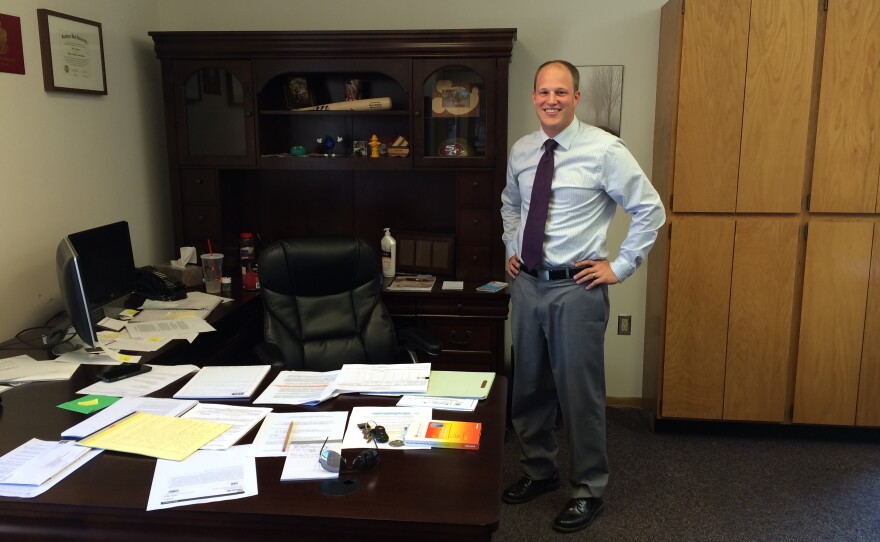So much water‘s been pumped out of the Cedar Valley that the ground surface and the water table are sinking, and the Central Iron County Water Conservancy District has spent years tracking down new ways to get water to the people of Cedar Valley.
It’s scrapped the idea of pumping water uphill through the Lake Powell Pipeline because of the high cost. And now it’s trying to reverse decades of water mining by recharging the subsiding aquifer with creek water.
But water officials struck out on Thursday when they requested money from a state fund to help address the problem with plans for a new pipeline.
“I like to call this or Cedar Valley’s – last straw, our ability to import water from another basin,” said Paul Monroe, the water district’s director.
The district secured rights to groundwater in Beaver County two years ago. And now it’s ready to begin drilling test wells for water that could someday be piped to Iron County communities fifty miles away. Monroe asked members of the Permanent Community Impact Fund Board for a $150,000 matching grant to help start on those test wells.
“That’s part of the reason for these wells – so that we know that the source is there. We don’t want to build a two-hundred-million project and then realize that the water source is not there.”
But the funding agency’s strapped these days, and members had lots of questions about the district’s request. Board members like Claudia Jarrett wondered about water-right mediation and environmental reviews still ahead.
“Is this [funding request] premature,” she asked Monroe, “relative to your mediation on it?”
In the end, funding board members voted put off a decision until the water district returns with more information.






